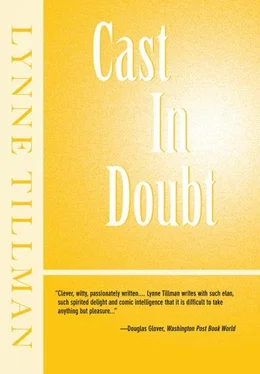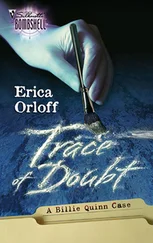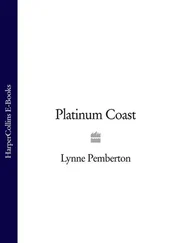I look away. Helen has returned and is now on her terrace. The sun has almost entirely set, leaving behind glorious slashes of red and purple in the darkening sky. She’s turned one light on; it’s hanging above her head but she’s not reading. Drawn to the light as I am, Wallace looks in Helen’s direction and says that he met “that young woman”—he knows her name — at the market and asked her if she ever intended to marry and would she consider him if she did. Wallace says that he dropped to one knee to ask her for her hand and that Helen laughed and told him to get up and relax. Wallace’s girlfriend is not amused. What is her name? Something guttural — Brechje, I think. Wallace explains that he asked Helen to marry him only to make her feel better, for surely a woman on her own is lonely. The life of a spinster is barren, he warned Helen. I can just picture Wallace doing that and imagine Helen’s disgust. He seems to have a penchant for dropping to the ground.
Once, when he was in Paris, Wallace trotted about the city wearing a pith helmet and dunked his head under the cascading waters of several stone fountains. He filled his pith helmet with water to throw over himself. It was a hot summer. He showered in the street and lay on the ground next to Notre Dame until the gendarmes removed him. That was the summer his mother came to Paris to see him, to rescue him from the Beats and so forth. But Wallace was not for rescuing. He enjoyed the bohemian life and also enjoyed throwing himself at his mother’s feet, accusing her in a loud moan of driving him crazy. When he tells this story he always notes: My mother shook and so did her gold jewelry. Wallace loves making a scene.
Roger is approaching, affecting his usual manly gait, and I spy a peculiar little smirk on his lips that I’d like to rub off. Or rub out, rub him out. I must be drunk or Helen is right and I hate him. He kisses the Dutchwoman’s hand elegantly and Wallace sits up, like a well-trained dog, to pay attention to him, as if to a teacher. To my eye Roger is in no way commanding. He can be pedantic, though. They all chatter together aimlessly for a bit and Roger asks how my book is going and if I didn’t finish a big chunk the other night. My work is progressing, I lie, and yours, dear? I’m past the hurdle, he says. I act as if I believed him. Then he goes on to talk about his novel, its structure, as if all one wanted to hear about were his artistic trials and tribulations. It is one thing to discuss a literary subject, it is quite another to complain endlessly about the difficulty of writing. These things, I believe, ought never be the topic of discussion. Would a carpenter take up the dinner hour telling all assembled how hard it was to finish this or that job? No, he’d get on with it. If he were intelligent he might talk about an aspect of carpentry from which all assembled might learn something. Carpentry affords many metaphors.
You’re airing your clean laundry again, I say to Roger. In this you and I have no meeting of the mind. Unhappy with my castoff, he responds and points to Yannis, who’s dying of boredom, I assume, at another table. Oh Roger, I retort, in mock horror, you strain credulity. You are tres transparent. And you, Horace, he answers, are in no position to talk. I am sure Yannis has heard Roger’s remark; this bodes ill for the rest of the evening.
The evening ends as most do. It blurs into a watery mass of colors, amorphous moments and words, the night’s palette. Helen’s light is still on but she is no longer on her terrace. Her curtains are drawn. I wonder if she is making love. I want to make love, though that is not what Yannis and I often do. He sometimes permits me to love him and occasionally he responds to or services me. I content myself with the past. There was a love of my life, years and years ago. He and I shared a bed and a home for fifteen years, and it ended finally and suddenly, broken off mysteriously and mutually after a petty quarrel, and I’ve never understood it. That was many years ago, and he’s been dead for ten, and I never again truly shared my life and lived with anyone that way, so profoundly, not after him. I was involved with a few, but none like him.
Yannis is no grand passion, not even a small one. He’s a comfort to me, and sometimes he is not, as when I am irritable from drink and he is sulking about some wound that is probably self-inflicted. I do have a sharp tongue and say things I don’t mean, most of which I’m sure he doesn’t understand, but the boy has a terrific capacity for dark moods, which sometimes frighten me. I try to cheer him up with gifts and small trips. I don’t understand him and he certainly doesn’t understand me. He thinks I putter about and just type, for example, and I think — I don’t know what I think. I am too old to expect more. I am ridiculous. My body is decaying, the flesh literally weakens and drops from the bone, gravity is pulling at me. I grow old, I grow old. Alicia says it’s the drink and perhaps she is right.
T.S. Eliot understood decay, I’ve often said that was his métier. But need and lust, in me they have not weakened and from me they have not fled, even though my body shrinks, grows tired, and my flesh loses its hold, its grip on life. It doesn’t matter — matter’s not the matter — and more’s the pity, because my thoughts are the same, and if I allow myself these — primitive, primordial, and ageless — they make me young again, in my mind, and I feel a blast of lust, of full-bodied, young desire rising up from my darkest self. Furiously it rushes into my mouth and then to my genitals where it settles, only to become cold and solid and still. I can taste it, my desire and lust, like Proust’s madeleine. I can become terribly sad, despondent. I want to rage against this inevitable fate, to rage like so many men before me. Sometimes I want to die.
I often picture my funeral, even when I’m happy, especially when I’m happy. I see the faces of friends, back in the States where I’ll be buried, of course, in the family plot, just beneath — in the row below, that is — my father and mother. My parents visited their future gravesite once a year, to place flowers on their mothers’ graves — their mothers knew each other well — and I was taken along, my spot pointed out to me with pride. At my funeral — I can see it very clearly — friends who haven’t heard from me for years and years will remember me and my antics in prep school and college. Then my publisher will say a few words, and some of the New York crowd, whoever’s alive, will make the trip, and say how charming I could be, and so forth. I will leave the world in relative anonymity. It’s unbearable to me. I drink until I can drink no more.
The magnanimous black sky is bottomless, fathomless like death and life too, and it comforts me in a way Yannis can’t, which is not the dear boy’s fault. He’s asleep on the bed, a body made tender by unconsciousness. I am looking out at the harbor, still as death at this time of night. Nothing is moving but the water and the clouds. Even the wind blows silently. The air is cold and startling. The night gods have chilly breath. Whatever paradise is, it must happen when everyone’s asleep, when there can be no complaints, and that must be why night gets so dark, so that we cannot see any imperfections in our world, and there can be nothing to complain about. Pound wanted to write paradise at the end: “Let the wind speak, that is paradise.” My enduring, stubborn passion must be written on the wind. And there it goes, there it goes, blown away by an indifferent blast of black and silent night air. Helen’s light is finally out.
It might be a policeman’s flashlight shining on my puffy face. It could be the police. But it is not. It is sunlight. I’m groggy and Yannis has gone to make coffee, I suppose, though he may not have, depending on his mood. Each day is different and in some ways the same. What an awful truism with which to start this one. I feel oddly light-headed and well. The day, for no reason I can perceive, begins brightly, like a newborn babe, all pink and naked, and the sun is a marvel, amazing, burning so fiercely, lighting up this part of the world. Were I consistent, I would become a nudist, or some sort of nature lover, or at least a sun worshiper, and walk every morning to the end of the to watch the sun rise, or go to the beach, with suntan lotion and blanket, and lie near the ocean and let the sun bake and warm me. Perhaps I ought to sing songs to it. I don’t know why I don’t. For no reason at all, except that I am alive, and awake, and can’t remember my dreams, or my dreams have decided to let me forget them, I feel optimistic today. Hopeful as a clear blue sky, with no clouds at all, no signs of trouble. The coffee is terribly hot, brewed to my liking, and Yannis is not sullen. The small blessings of life make it bearable. I am a lucky man. I have never been arrested, and I ought to have been.
Читать дальше












